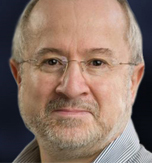UNMC researcher Angie Rizzino, Ph.D., has obtained one of the first new human embryonic stem cell lines approved for use by the National Institutes of Health since President Obama ordered an update of the federal stem cell research guidelines in 2009.
 |
Angie Rizzino, Ph.D. |
Dr. Rizzino, professor in the Eppley Institute, plans to start work with the new stem cell line in the near future.
Dr. Rizzino’s lab aims to:
- Understand key molecular mechanisms that control the dual properties of human pluripotent stem cells — their ability to replicate without limit and their ability to develop into virtually any cell type of the human body;
- Understand the molecular mechanisms that control the formation of human and mouse induced pluripotent stem cells (iPSCs), which are similar to embryonic stem cells and which can be generated from a wide range of adult human cells; and
- Develop an understanding of the molecular mechanisms that control the growth of difficult-to-treat human cancers.
“The science, technology and regulation of the use of human embryonic stem cells have advanced dramatically in recent years,” said Tom Rosenquist, Ph.D., vice chancellor for research. “The expanded NIH-funded stem cell research initiative will result in an explosion of data that will hasten the therapeutic and life-saving application of stem cells.
|
Before Dr. Rizzino could obtain the new cell line, he had to receive approval from UNMC’s Institutional Review Board and its Embryonic Stem Cell Research Oversight (ESCRO) Committee.
The 10-member ESCRO Committee, which was formed by UNMC to specifically deal with embryonic stem cell research, includes eight UNMC scientists as well as two community members, one of whom is a non-scientist.